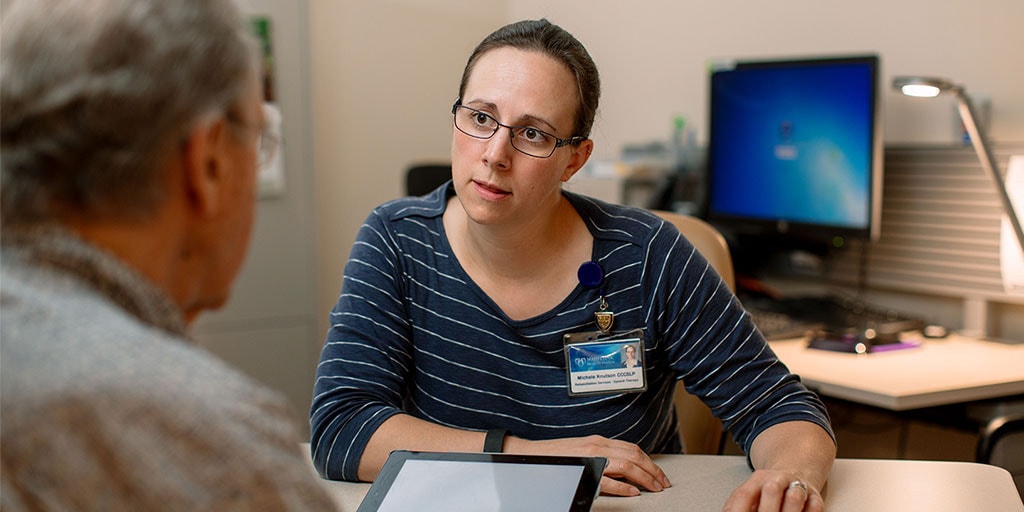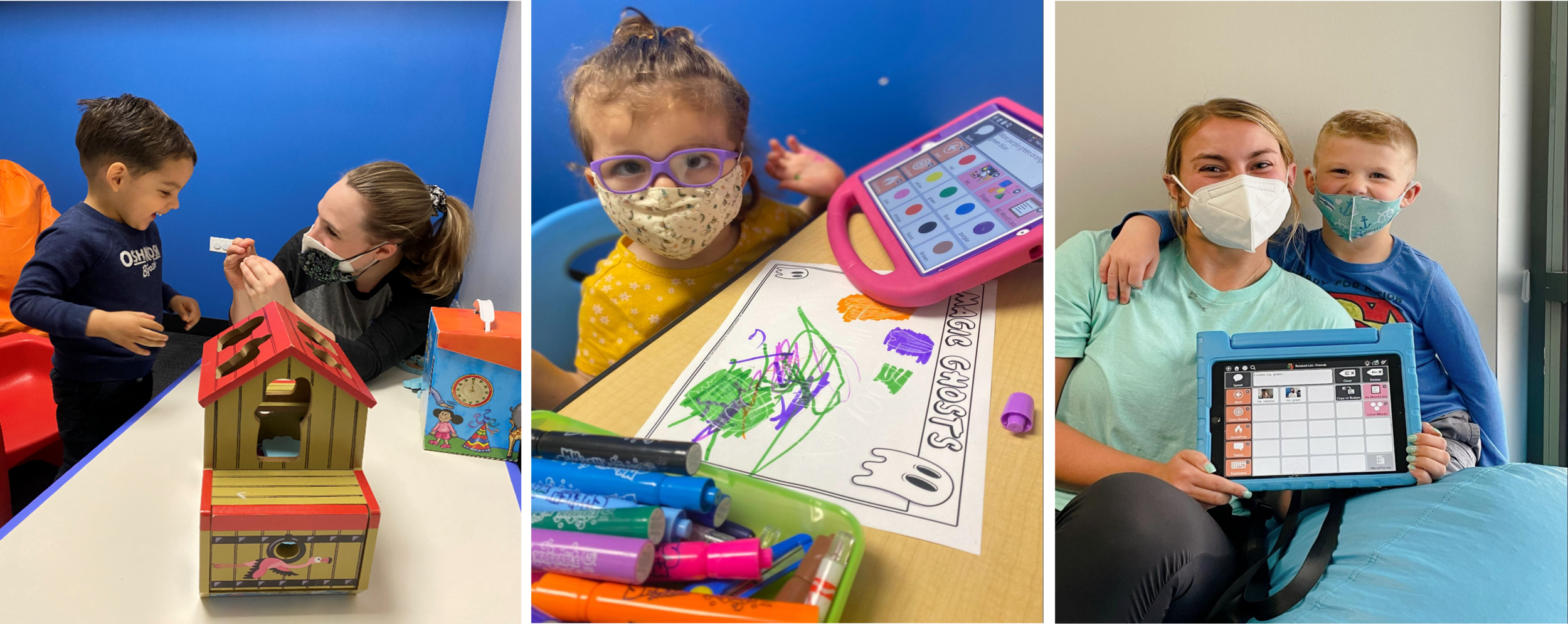When Should You Consult a Speech Pathologist for Language Disorders?
When Should You Consult a Speech Pathologist for Language Disorders?
Blog Article
Exactly How a Speech Pathologist Can Aid Improve Interaction Abilities
Reliable communication is a cornerstone of specialist and individual success, yet several individuals face obstacles that hinder their capability to share themselves clearly. A speech pathologist is geared up to resolve these obstacles via targeted analysis and intervention strategies tailored to each person's needs.
Comprehending Interaction Problems
Comprehending interaction conditions is necessary for recognizing exactly how they affect people' capability to reveal themselves and involve with others. Interaction problems include a vast range of troubles that impact speech, language, and social interaction, frequently preventing effective interaction. These disorders can develop from numerous factors, including neurological problems, developmental hold-ups, physical impairments, or psychological problems.
Speech problems may manifest as troubles in voice, articulation, or fluency manufacturing, affecting how words are obvious or talked. Language disorders, on the other hand, include difficulties in understanding or using language, which can restrain both non-verbal and verbal interaction. Social interaction problems are defined by difficulties in the practical aspects of interaction, such as taking kip down discussion or understanding social cues.
The effects of communication disorders are profound, affecting not only the individual's capacity to share emotions and thoughts but additionally their social relationships, educational opportunities, and overall lifestyle. Awareness of these disorders can foster empathy and support, encouraging reliable strategies for communication and involvement. Understanding the complexities of interaction disorders is an important step towards promoting inclusivity and addressing the demands of those impacted.
Function of a Speech Pathologist
Speech pathologists often play a crucial duty in treating and diagnosing communication problems, employing a variety of evidence-based strategies tailored to every person's demands. These experts collaborate with individuals across the life expectancy, from youngsters with speech hold-ups to grownups recovering from strokes or traumatic mind injuries. Their competence encompasses a range of interaction issues, including expression, voice, fluency, and language disorders.
In therapeutic setups, speech pathologists make use of organized interventions created to boost communication abilities. They might carry out methods such as speech workouts, language games, and social interaction training to help with improvements in meaningful and responsive language abilities. Speech Pathologist. Furthermore, they inform clients and their family members regarding efficient interaction techniques and flexible methods to navigate daily interactions
Beyond direct treatment, speech pathologists work together with other health care educators, caregivers, and experts to ensure a comprehensive strategy to treatment. They advocate for clients by supplying resources and support, making it possible for individuals to attain their communication goals and enhance their general lifestyle. As professionals in the area, speech pathologists are crucial in cultivating effective communication, promoting freedom, and enhancing social participation for those with interaction obstacles.
Analysis and Diagnosis Process
The analysis and diagnosis procedure carried out by speech pathologists normally entails a thorough analysis to recognize interaction disorders properly. This procedure begins with a comprehensive situation background, where the clinician collects significant information concerning the individual's medical, academic, and developmental background. Comprehending the context of the person's interaction troubles is crucial for a precise medical diagnosis.
Following the medical history, speech pathologists utilize casual analyses and standardized examinations to examine various elements of communication, consisting of speech noise production, language understanding, expressive language, and social interaction abilities. These assessments are customized to the individual's age and specific problems, giving beneficial data for analysis.
Monitoring is additionally a vital part of the assessment process, as it enables the clinician to see firsthand exactly how the individual communicates in natural setups. Furthermore, meetings with member of the family and instructors can provide understanding right into the person's interaction obstacles throughout different atmospheres.
As soon as the analysis is total, the speech pathologist synthesizes the findings to figure out a medical diagnosis and recommend suitable treatments. This detailed analysis procedure makes sure that people receive targeted support customized to their special interaction needs, laying the foundation for effective restorative techniques.
Therapeutic Strategies and Approaches
Various healing methods and methods are used by speech pathologists to attend to a selection of interaction conditions successfully. One commonly used technique is expression treatment, which focuses on remedying speech appears via repetition and visual hints. This method is specifically helpful for people with speech audio problems.
Another effective technique is language intervention, which improves both expressive and receptive language skills. This may include interactive tasks that promote Source vocabulary growth, syntax understanding, and conversational abilities. Furthermore, speech pathologists commonly utilize social skills educating to boost pragmatic language abilities, making it possible for people to navigate social interactions more efficiently.
Fluency shaping and stuttering alteration methods are read here particularly designed to assist those experiencing fluency disorders. These approaches aid customers establish smoother speech patterns and manage the psychological and physical parts of stuttering.
Furthermore, augmentative and alternative interaction (AAC) systems are used for people with severe interaction problems. These systems, which can consist of motions, icons, or electronic gadgets, give essential assistance for effective communication.
Benefits of Speech Therapy

In addition, speech therapy can assist in establishing vital listening and comprehension skills, promoting much better interaction in conversations. Individuals with cognitive-communication conditions can likewise benefit, as treatment concentrates on reinforcing memory and analytical abilities, crucial for efficient communication.
One more important element is the psychological assistance provided during treatment sessions. Speech pathologists create a risk-free setting, motivating people to get rid of stress and anxiety and aggravation associated to their interaction problems. This assistance can cause improved self-esteem and overall psychological wellness.
Additionally, early intervention with speech therapy can avoid further complications, making certain that individuals reach their full communicative possibility. In general, the benefits of speech therapy extend beyond mere speech renovation, positively influencing different measurements of life for those impacted by communication troubles.
Conclusion
In recap, speech pathologists play a critical duty in dealing with interaction disorders with evaluation, medical diagnosis, and customized restorative treatments. By employing evidence-based strategies, these professionals boost individuals' speech and language capacities, fostering enhanced clarity, fluency, and social interaction abilities. The advantages of early treatment highlight the significance of seeking assistance from speech pathologists, as their knowledge can considerably improve communicative potential, ultimately leading to greater success in both personal and expert rounds.

Speech pathologists frequently play a vital function in dealing with and identifying interaction disorders, employing a variety of evidence-based methods tailored to each person's needs. As experts in the field, speech pathologists are essential in cultivating effective interaction, promoting self-reliance, and enhancing social engagement for those with interaction challenges.

Report this page